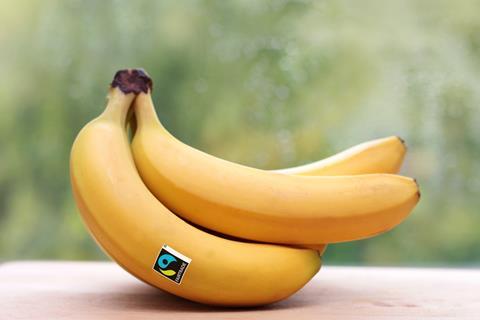Map helps producers around the world build effective responses to greatest supply chain risks in collaboration with farmers and workers

Fairtrade has launched a new risk map to identify and visualise the greatest human rights and environmental risks in the sectors where it is active.
The charity stressed that human rights violations and environmental harm remain widespread in global supply chains. One in five workers globally lives in poverty; agricultural production is responsible for 70% of freshwater withdrawals across the world; and child labour is increasing.
Currently, the risk map covers bananas, coffee, cocoa, wine grapes and honey, as well as the most common countries of origin for these products. More products will be added in the coming months, Fairtrade said.
The catalogued risks are relevant to the products and their associated growing regions for any supply chains, not only for Fairtrade. This means anyone – from farmers and worker organisations to brands to NGOs – can hone in on salient risks to communities and in supply chains.
The website also includes detailed information on specific risk issues such as child labour, gender rights and living income, as well as environmental risks related to climate change, water, and biodiversity.
As well as cataloguing the most common risks, the map demonstrates how they are inseparable from their root causes, such as poverty, inequality, and exploitation.
The launch comes as companies face growing legal obligations to carry out risk assessments and prevent, mitigate, and remediate the greatest risks in their supply chains.
A product of Fairtrade’s ongoing risk and impact assessment work, the map adds value by incorporating rightsholders’ input, Fairtrade said. This is collected through dialogue and participatory processes.
To develop the map Fairtrade spent several months working with farmer cooperatives, workers and plantation management, and Fairtrade staff across six continents, as well as external experts.
Marike de Peña, president of the Fairtrade Producer Network for Latin America and the Caribbean CLAC, said: “The risk map can facilitate a transparent dialogue between supply chain actors and help companies in building effective responses to address the greatest risks, avoiding further harm to farming communities and the planet.”
Based on its experience, Fairtrade can support companies in each step of implementing their due diligence responsibilities, particularly in the identification, prevention and mitigation of harms and risks.
Being transparent about systemic human and environmental issues can also be risky for farmers and workers in itself. If companies are not ready to shoulder their part of the responsibility, they might opt to cut all ties rather than go through the process of mitigating and remediating risks together with farmers and workers.
Fairtrade said it encourages companies not to ignore risks but rather to use the new map as an opportunity to start a dialogue with farmers and workers and take concrete steps to make global supply chains more sustainable.
“Because many risks are deeply rooted in poverty, inequality and exploitation, it takes the collective effort of companies, farmers, workers, governments and civil society to effectively tackle them in the long run,” the organisation said.
“This is why, although certification can encourage certain standards to be upheld, the use of certification should never be the only measure a company takes.”
Fairtrade’s business and human rights director Tytti Nahi added: “Fairtrade has been a pioneer in advancing human rights in business for more than 30 years.
“Due diligence must not be just about internal processes and requirements to business partners, it needs to be about dialogue, collaboration and changing one’s own practices, to improve people’s lives and protect the environment.”



